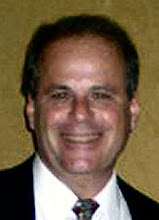There were two pogroms in Kishinev (now called Chisinau, located in the country of Moldova). The first one, on 6-7 Apr 1903, was said to have begun because of the rumors that were spread that Jews were involved in the murder of a Christian Russian boy two months earlier. Two anti-Semitic newspapers published these rumors, one going as far as saying that the Jews killed the boy so they could use his blood to make matzoh. This was an age-old accusation made of the Jewish people.
I have just amended the Museum's webpage about the Kishinev pogrom, which is part of the Museum's exhibition about the various pogroms that were committed against the Jewish population, not only within the first ten years of the 20th century, but also after World War II in such locations as Kielce.
The amendment to the Kishinev page includes a report of the massacre then, as published by the New York newspaper, The Sun, more than one month after the pogrom. Here is an eyewitness account from a Jew from Kishinev that appears on the webpage:
The first Jewish refugee from Kishineff to reach America and bring a personal account of the recent massacres of Jews by Russian Christians there arrived in the steerage of the Kaiser Wilhelm der Grosse, which got in Wednesday from Hamburg. He is Jacob Friedman, a retail glass dealer in the riot-ridden city. He fled from Kishineff with his wife and children the second day of the disturbances, after his grandfather had been clubbed to death before his eyes. He hadn’t enough money to bring his family to this country with him, but he will send for them later.
Friedman came from Ellis Island yesterday and was taken to the Jewish Daily News office, where he told of his experiences in Kishineff and his flight.
On Easter Sunday, which was also the last day of the Jewish Passover, Friedman said he, his wife and four children and his grandfather, who was also a partner in business, were seated at a holiday dinner when they heard a great turmoil outside.
“We rushed to the windows,” he said, “and saw a mob coming down the street, breaking and smashing everything as they came. I knew at once that a bloody riot was beginning and, seizing my youngest child, exclaimed: ‘Come, they will kill us; we must hide in the cellar.’
But my grandfather wouldn’t have it so. He said the mob was harmless, that they were only drunk and not dangerous. Finally he said: ‘To show you that they will not harm any one I shall go out into the street and watch as they go by.’
He had only gone a few steps from the door when the mob rushed at him. The first to reach him knocked him down with a club, and then the others closed in around him and struck him many times. I ran out and tried to save him, but had to run for my life without getting to where he lay.
I managed to get away by running through side streets to the house of a Christian who owed me quite a sum of money. I begged him to save me and my family and told him that if he would help us I would free him of the debt.
He hid me in the cellar until the next morning and kept the mob from harming my wife and little ones. Before daylight the next day he got a wagon and took my family from the house to the house of another Christian in a neighboring village. Later the second Christian took us to the railway station and we went first to Grodno and afterward to Sepetkin, where I left my family with relatives.”
Friedman said that as he was hurrying through the side-streets of Kishineff he saw a Jew terribly wounded lying in the gutter.
“When a number of other Jews came creeping out of their houses to try to carry the man away so that he could be cared for,” said he, “the mob rushed down upon them and there was a terrible fight. Several Jews, I think, must have been killed, but I am not sure for we got away as fast as we could.”
You can read the rest of the article by visiting www.museumoffamilyhistory.com/mfh-pogroms-kishinev.htm .
Tuesday, September 15, 2009
Subscribe to:
Post Comments (Atom)




No comments:
Post a Comment